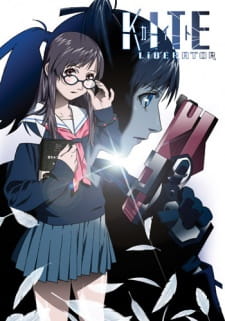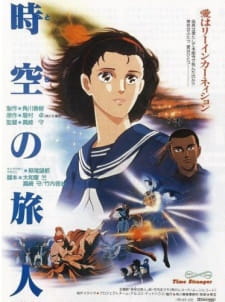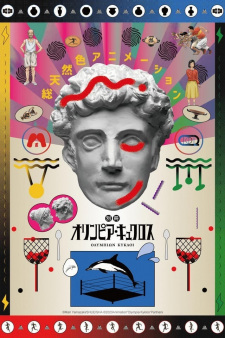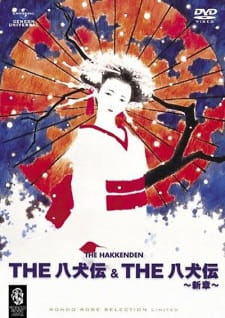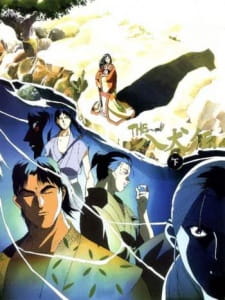Jul 30, 2024
Amongst anime, there have been quite a few titles tackling the subject of time travel. It's usually just a plot device to explore specific stories in a new way, such as with the murder mystery of Erased; or the resetting of Re:Zero. Steins;Gate more intimately explores the subject of time travel than any of these, and it is VERY Japanese, but more so in the "otaku pandering" way and nothing more. What I think makes Toki no Tabibito interesting as a time travel film is how uniquely Japanese its perspective is.
The film presents 1980s Japan and a dystopia several centuries into the future. We travel
...
nowhere but back in time: WWII air raids, then several different jumps into the Tokugawa and Sengoku periods, with a primary focus on Japan's developing unification after a long period of civil war. The dystopia, which we see in bursts of hyper-stylized animation and angles, and expository flashbacks, reigns supreme over every facet of life, even time itself, as the eons are strictly enforced by time patrol. As opposed to numerous Western time travel films I've seen, which tend to really bask in set pieces for a long time, this is a rather chaotic, fast-paced film that seems to never slow down. One second the characters are chewing the scenery, and the next, they're packed into the mystery machine and are flung into a different year—seriously, if they added a pet—any animal—to this, it would look like a Scooby Doo parody. I mean, that's a very distinct design for the van, and it looks insanely dated.
The pacing, alternative history approach, and the plot-driven and adventurous nature result in the characters taking a bit of a back seat (pun intended) and leaves them functioning more so as wafer-thin archetypes, and the clear intent was for each to be an everyman according to his or her archetype. The main cast consists of a brooding and angsty time traveler, a jock, a bookish and computer savvy four-eyes, an older mentor/teacher, and a young girl. Technically, we don't even need any of these characters other than the time traveler, who happens to be an impulsive and selfish prick, involving people who needn't have any role in all of this. The other four appear to represent core archetypes for a functioning society, and also serve as relatable and uninitiated observers for the audience—with the teacher providing a few brief history lessons and context to events. I'm sure certain modern audiences would be offended by the role of the girl, who seems to be there solely to fall in love with dominant and high-status men, but an emphasis on the (soon to be) mother archetype is crucial.
The thing about Western time travel films is they're mostly concerned with preventing paradoxes and the horribleness of changing the past because of the unknown ways in which the future will be impacted. This suggests an optimism about our time and the direction we're headed in. The past is often derided and spat upon in favor of a new value system and presumptuous notions of "progress." Most of the notable films of this sort came from Hollywood, and the U.S. benefitted greatly from the outcome of WWII, giving these artists an incentive to write stories about preserving the sanctity of time. Perhaps best encapsulating this rose-tinted view is the concept of the end of history envisioned by many past authors, but most recently reframed from a neoliberal perspective by Francis Fukuyama, and the West would have spearheaded that paradigm.
Japan was, of course, not as fortunate, leading to the fatalistic irony of Jin-Roh's alternate history where Japan instead joins the allies, only to end up with roughly the same outcome: a victorious Germany instead nuking and then occupying Japan rather than the U.S. It's for this reason I think there's a greater likelihood of finding pessimism—or at least sentimentality and a yearning or nostalgia for what was lost—within Japanese time travel fiction. If the present is not so great, or is in many ways a presumed shadow of what it could have become, then why not take the leap and rewrite history? Even more so if you have a visitor from the future who points out the unlivable and hellish dystopia that awaits your descendants.
There's a moment late in the film where I think many people will accuse the writers of hammering in a plot twist much too fast, but this kind of split-second back and forth ambivalence is the best way to approach fiction with a character who has the opportunity to change the past, I believe. This is one of the few time travel stories I've seen that doesn't take a complete knee jerk reaction of "No, we must never alter anything" and instead opts to present both choices as legitimate.
More than anything, however, I feel a great sense of unity amongst the characters that transcends the various time periods. It's not uncommon for there to be a "touching moment" in most time travel films when the main character bonds with people from a timeline and must leave them behind and will never see them again. Yet it seems much more pronounced here, as various scenes imply a strong national identity and sense of kinship that is simply not present in Western films, and that's further reinforced by the themes of reincarnation and the everymanification of the characters. By stripping these characters of highly developed personalities or characteristics, their archetypes appear to have a continuity that always was and always will be, connecting all of the people throughout the different time periods, as they have a shared heritage, even if civil war would lead to them fighting amongst each other. Yes, some of these choices were no doubt because they had to adapt a novel series into a short movie, and they didn't have time for well-fleshed-out characters, but I believe this "flaw" worked out in the film's favor, oddly enough.
In terms of technical aspects, the movie is quite solid, trouncing just about any visual-based time travel media I can recall. Koji Morimoto's mechanical design is great. Yasuomi Umetsu's opening key animation with the time traveler dodging laser blasts against a stark black backdrop is so riveting and stylistic that I remember being disappointed with the film the first time I watched it because nothing else had such flair. However, the film is solidly animated, storyboarded, and directed all throughout. The finale is also very flashy, featuring superb work by Yoshiaki Kawajiri and lots of striking effects animation and vivid colors. Detractors include the pacing perhaps being a little too fast at a few points, the plot holes and inconsistencies you'd expect from a time travel film (as well as a few plot holes that didn't involve the device at all), and moments that can be a little cheesy. Case in point: a time travel machine disguised as a house that ends up flying around.
With the film and TV market being so oversaturated with time travel films expressing the same old themes of preserving what transpired, it's a blessing to find something that will at least entertain embracing the opposite, without it leading to a fairy tale-esque bad outcome and life lesson or some personal wish-fulfillment ending that doesn't matter for anyone other than the cast, but instead concerns the entire nation, and possibly the world—nevertheless, we're not told which decision is better, and we're left with a bittersweet conclusion, which is the most fitting end for a history that can only be dreamt of and will never be.
Reviewer’s Rating: 8
What did you think of this review?
Nice
 0
0
Love it
 0
0
Funny
 0
0
Confusing
 0
0
Well-written
 0
0
Creative
 0
0Show all







